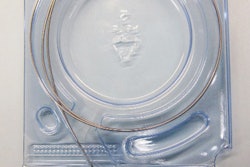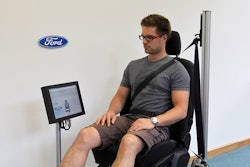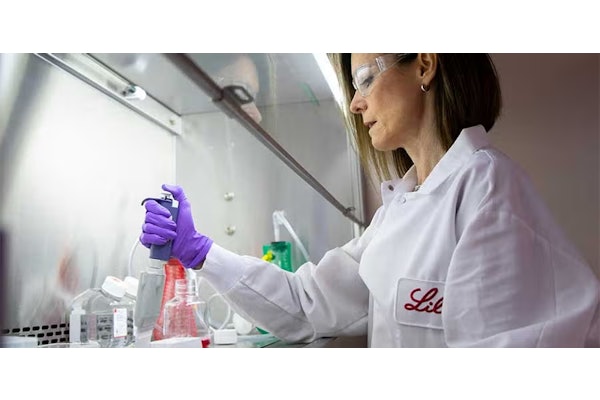
In the past few months, I've noticed more press releases related to FDA warnings and recalls than usual arriving in my e-mail in box. One example comes from MedWatch, the FDA Safety Information and Adverse Event Reporting Program.
MedWatch's June 13 announcement warned of the risk of thyroid C-cell tumors and acute pancreatitis associated with the use of Victoza (liraglutide [rDNA origin]), which is indicated as an adjunct to diet and exercise in patients with Type II diabetes mellitus.
Because that announcement touches this editor on a personal level, I decided to broach the subject with my physician. He said I shouldn't be worried at this point, that further studies were required. He added that in the past year or so, he noticed the FDA has become quite active in its warnings and recalls activities.
After indicating my understanding, I asked if a more proactive FDA was good for consumers/patients, and he responded “not necessarily.” He cited as an example patients who could no longer gain pain relief from a prescription drug that was taken off the market recently after being sold commercially for more than 10 years. “Why was it good for so many years and now is recalled,” he asked?
FDA's reach, of course, extends beyond drugs. Take, for example, a May 24 InHealth Institute for Health Technology Studies report about the results of a Northwestern University survey pertaining to the FDA's 510(K) product review process. Lead researcher John Linehan, PhD, and professor of biomedical engineering at Northwestern, said, “As FDA considers regulatory revisions, what's at stake is the ability of companies to attract investors in order to continue developing innovative, life-saving products and sustaining American competitiveness in the global marketplace.”
The study's report says, “Increasing uncertainty about the implementation of the 510(k) process—partly attributable to increases in device complexity—is posing challenges for FDA and industry that may lead the United States to experience a 'brain drain' in the medtech sector.” About two-thirds of the survey's respondents believed that Europe's CE marking process is the most predictable, with predictability a key factor in determining whether or not to invest in a new product.
The agency's perspective is seen on the FDA's Center for Devices and Radiological Health (CDRH)'s online Medical Device Innovation Initiative. The site, which includes a nearly hour-long video on the subject, says the Initiative could help “accelerate and reduce the cost of development and regulatory evaluation of innovative medical devices safely and based on sound science. These actions include:
• Facilitate the development and regulatory evaluation of innovative medical devices;
• Strengthen the U.S. research infrastructure and promote high-quality regulatory science; and
• Prepare for and respond to transformative innovative technologies and scientific breakthroughs.”
Whether you're developing a drug, medical device, biologic, or combination product, working with the FDA up front on package design becomes more important than ever given the agency's “unpredictability” factor noted in the Northwestern medical device study. Stay tuned, and stay healthy!
-Jim Butschli, Healthcare Packaging editor
MedWatch's June 13 announcement warned of the risk of thyroid C-cell tumors and acute pancreatitis associated with the use of Victoza (liraglutide [rDNA origin]), which is indicated as an adjunct to diet and exercise in patients with Type II diabetes mellitus.
Because that announcement touches this editor on a personal level, I decided to broach the subject with my physician. He said I shouldn't be worried at this point, that further studies were required. He added that in the past year or so, he noticed the FDA has become quite active in its warnings and recalls activities.
After indicating my understanding, I asked if a more proactive FDA was good for consumers/patients, and he responded “not necessarily.” He cited as an example patients who could no longer gain pain relief from a prescription drug that was taken off the market recently after being sold commercially for more than 10 years. “Why was it good for so many years and now is recalled,” he asked?
FDA's reach, of course, extends beyond drugs. Take, for example, a May 24 InHealth Institute for Health Technology Studies report about the results of a Northwestern University survey pertaining to the FDA's 510(K) product review process. Lead researcher John Linehan, PhD, and professor of biomedical engineering at Northwestern, said, “As FDA considers regulatory revisions, what's at stake is the ability of companies to attract investors in order to continue developing innovative, life-saving products and sustaining American competitiveness in the global marketplace.”
The study's report says, “Increasing uncertainty about the implementation of the 510(k) process—partly attributable to increases in device complexity—is posing challenges for FDA and industry that may lead the United States to experience a 'brain drain' in the medtech sector.” About two-thirds of the survey's respondents believed that Europe's CE marking process is the most predictable, with predictability a key factor in determining whether or not to invest in a new product.
The agency's perspective is seen on the FDA's Center for Devices and Radiological Health (CDRH)'s online Medical Device Innovation Initiative. The site, which includes a nearly hour-long video on the subject, says the Initiative could help “accelerate and reduce the cost of development and regulatory evaluation of innovative medical devices safely and based on sound science. These actions include:
• Facilitate the development and regulatory evaluation of innovative medical devices;
• Strengthen the U.S. research infrastructure and promote high-quality regulatory science; and
• Prepare for and respond to transformative innovative technologies and scientific breakthroughs.”
Whether you're developing a drug, medical device, biologic, or combination product, working with the FDA up front on package design becomes more important than ever given the agency's “unpredictability” factor noted in the Northwestern medical device study. Stay tuned, and stay healthy!
-Jim Butschli, Healthcare Packaging editor





















